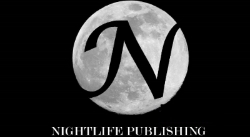Independent publishers are constantly looking for ways to sell more books. But in our never-ending quest to sell, we might be missing an important part of the equation; buyer behavior. Without a buyer, selling can't happen so if we don't sell in a way that fits the way buyers buy, we might be shooting in the dark.
In the past, people roamed book stores or read bestseller lists to find books. The arbiters of taste were few and selection was based largely on the inventory of our local bookstore. Amazon, Nook and their contemporaries have changed the game. That means we need to change our methods.
I will readily admit that I don't have a qualitative flowchart model on the modern consumer book buying process. If I did have one, I'm probably not smart enough to understand it. I do know how I buy books. I'm going to bet that my process is similar enough to other regular readers. We all have the enviable problem of too many books to read, not enough time to read them and everyone clamoring for our limited attention. Based on that, I'm going to extrapolate my experience as typical enough for this exercise. Please let me know if I'm way off the mark.
Please keep in mind that I'm not suggesting that my process is better than anyone else or should be the standard in the way books are selected. This is simply a description of my personal method. My prejudices and biases are cooked into this, so it may not match your preferences at all.
Based on my own observation, I currently have a four step process for buying a book. I'll refer to these steps as notice, choice, testing and purchase.
I don't buy books that I never see or hear about, so a book has to cross my radar and get noticed before I can consider it. As a reader and writer, there are several ways that I might notice a book. These are generally in order of influence:
- Suggestions from Amazon based on my previous purchases
- Titles on specific subjects that I search for on Amazon
- Browsing physical bookstores
- News articles about books that pop up in my research
- Recommendations from my favorite authors that I'm friends with on FB
- Suggestions from Good Reads
- on general bestseller lists,
- random social media messages that say "please check out my book",
- book review websites,
- book press releases
- social media comments that are simply thinly veiled attempts to add links for the author's book.
- book ads in newspapers, trains or on websites
After a book gets my attention, there are several factors that will influence whether I will give it a try. Sometimes this choice is subconscious and amorphous, but the selection factors include:
- Seeing the name of an author that I have read and enjoyed before
- An interesting cover design
- The book blurb
- The format the book is available in (paperback, e-book, audio book)
- The average rating for the book (if applicable)
- Any reference to other books the author wrote
- Any reference to the author being a "bestseller"
- Other readers specific reviews online
- Excerpts of critical reviews on the back cover
- Generic elements of cover design (i.e. the ubiquitous male shadow running away from the White House or the Capitol Building for thrillers)
- Cliche elements in the book blurb (I read a lot of spy fiction, but I instantly stop reading the blurb when I find out the protagonist is "a burned out cop on the edge", "a maverick FBI/ CIA agent" or "the special forces soldier who answers only to the president")
Once I weed out all the possible books I see, I get a sample of the book to see if the elements hinted in the blurb and the cover are actually in the book. Amazon's "try a sample" is a fantastic tool for this, but a couple times per year I'll grab a stack of books in B&N and peruse them for content. I read the first chapter and determine if the book needs to be acquired.
The decision to purchase is based on my level of excitement during the test.
- Low excitement after testing means the book gets dropped.
- A moderate level of interest means the book will get put on the Amazon/ Good Reads wish list where it might be read later or not at all.
- A high level of interest means an immediate or impeding purchase and insertion of the book into my audio, e-book or print book cue.
After taking a long look at my own buying preferences, there are several things I plan to change in my marketing of A Taste of Honey. I had a process that I used for Smooth Operator (See Marketing the Independent Novel) that I'll modify as follows:
- Offer the book on multiple platforms to increase potential notice
- Increased target ads to improve notice potential
- Increased advanced book reviews to increase positive choosing
- Offer the first quarter of my novel for free to encourage testing
- Competitive pricing to increase potential purchase
- Elimination of Twitter feed purchases on launch day
- Elimination of book press releases on launch day
Am I missing something in my thought process? Do you buy books in ways that I don't take into account? Do you sell books in a method that I don't mention? If you're willing to share your secret sauce, please leave a comment below.
Gamal





















